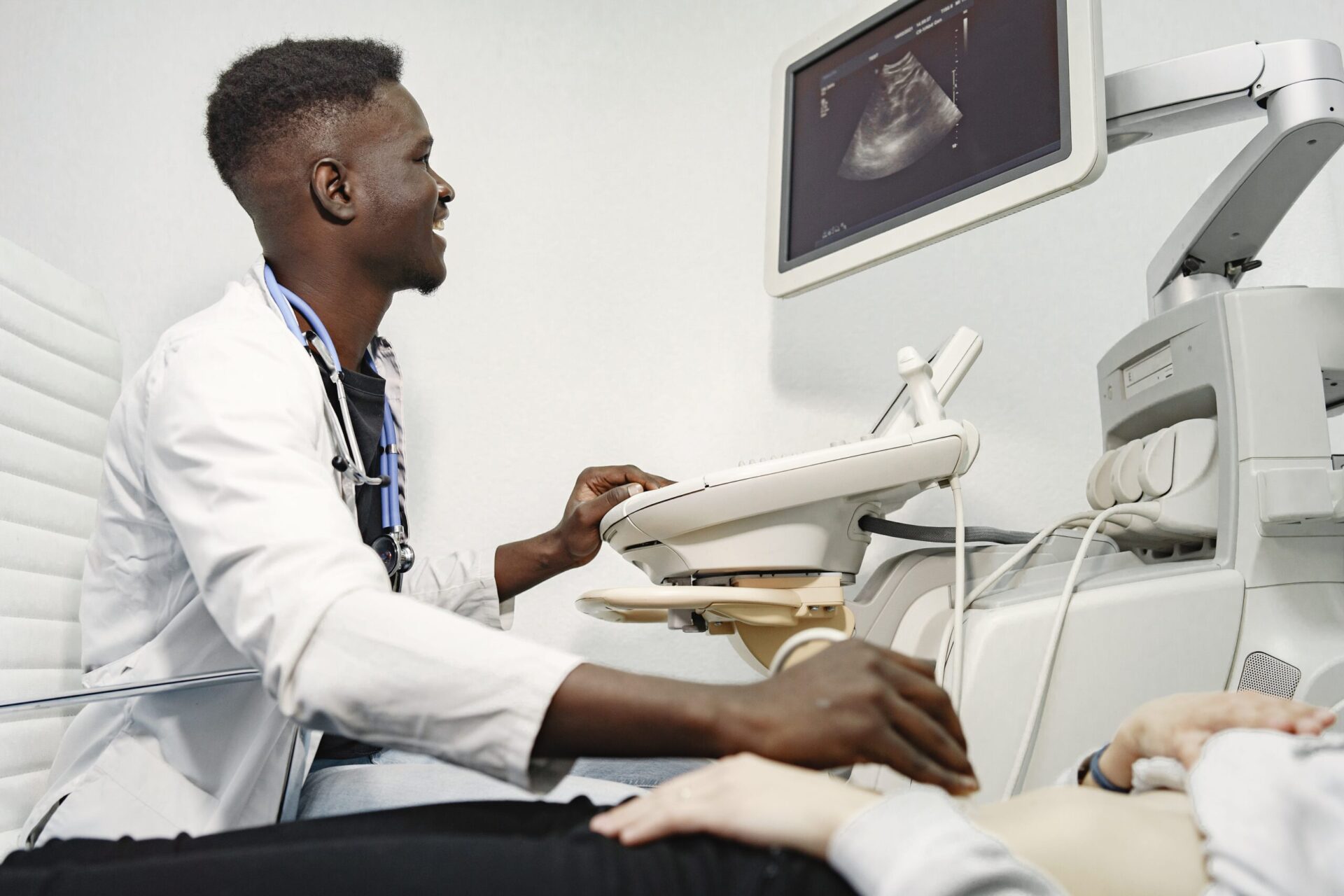
An apprentice sonographer, uses specialised technology to generate images of the inside of the human body for diagnostic purposes. Their primary activities are setting up ultrasound equipment, conducting ultrasound tests, and printing ultrasound images.
Responsibilities
Throughout your apprenticeship, you may help:
- set up and regularly check ultrasound equipment
- deal sensitively with patients, before, during and after their scan
- use ultrasound equipment to carry out examinations
- produce images and interpret observations
- write reports
- keep accurate and up-to-date patient care records
- train healthcare staff to use specialist equipment
- make referrals to other healthcare professionals.
Salary
- Starting salaries for a recently qualified sonographer is £40,056 per year.
- Experienced sonographer can earn up to £53,218 per year.
Working hours
You will typically work 36 to 40 hours per week, including evenings, weekends and bank holidays on a rota.
Working environment
You could work in an NHS or private hospital or in a therapy clinic.
Your working environment may be physically and emotionally demanding.
You may need to wear a uniform.
Qualifications
Qualifications you can achieve as an apprentice sonographer include:
- Level 6 Sonographer – Entry requirements for this level include 4 or 5 GCSEs at grades 9 to 4 (A* to C) and A levels, or equivalent, for a degree apprenticeship. The qualification typically takes 36 months to complete.
Skills
On a sonographer apprenticeship, you’ll learn:
- to be thorough and pay attention to detail
- sensitivity and understanding
- the ability to work on your own
- knowledge of medicine and healthcare
- the ability to accept criticism and work well under pressure
- excellent verbal communication skills
- concentration skills
- the ability to work well with others
- to be able to use a computer and the main software packages competently.
Career path and progression
There are opportunities to develop into obstetrics, gynaecology, vascular services, or cancer care. Working with specialised patient groups such as children, adolescents, or pregnant women is possible.
There may be opportunities to teach sonography or undertake clinical research with experience.
